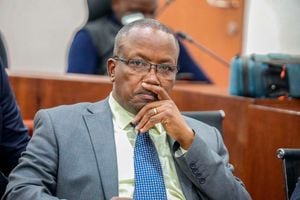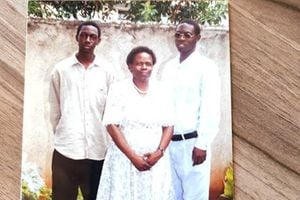
Kenya reported the highest trust in news in Africa, and the second highest in the world, at 64 per cent.
Mr Kithure Kindiki was sworn in last Friday as Kenya’s 13th post-independence deputy/vice president.
The swearing-in came after his successor, Rigathi Gichagua, lost the last of his court challenges against his replacement, following his impeachment by the National Assembly and Senate.
DP Kindiki isn’t the only winner in the impeachment drama. Managers in Kenya’s leading media houses confirm it was a ratings bonanza, with the impeachment and court scraps driving TV viewership and online readership through the roof, and even boosting hitherto ailing newspaper circulation. Even the lone wolf news channels on social media (some with more insightful analysis than mainstream media) reportedly made a good trade.
The good fortunes echoed some elements in the 2024 edition of Reuters Institute’s Digital News Report, which was published in June. The 2024 report is based on data on media use and consumption from 47 markets across six continents, together accounting for more than half the world’s population.
Indeed, on the latter, the report said; “Turning to the sources that people pay most attention to when it comes to news on various platforms, we find an increasing focus on partisan commentators, influencers, and young news creators, especially on YouTube and TikTok… But in social networks such as Facebook and X, traditional news brands and journalists still tend to play a prominent role”. The Herman Manyoras of this world could soon take over everything.
There is still yet no information on how much it translated into advertising revenues or paid online subscriptions, but if the avalanche of advertisements on TVs’ live YouTube channels of the proceedings is anything to go by, it didn’t hurt.
Six continents
From Africa, of five of its leading media markets, only Kenya, Nigeria, and South Africa had been covered, leaving out Morocco and Egypt. This year Morocco was included, making it the largest edition of the Digital News Report.
If Gachagua was a windfall, was it the story, the medium, or both? After all, when you take your potatoes to the market, no matter how sweet they are, if the buyers don’t show up, you will return home with them and they will wither.
The report revealed that on some days, Kenyans showed up in the digital market in a bigger way than people anywhere else in the word – and it was an African or global outlier in several aspects.
For example, TikTok is surging as a source of news, especially among younger audiences, and has for the first time overtaken X (formerly Twitter). The top ten markets where notable proportions of consumers used TikTok for news are all in the Global South. Thailand leads with 39 per cent, and Kenya is second with 36 per cent.
Additionally, globally trust in news has been falling. The report found that Finland remains the country with the highest levels of overall trust in news, at 69 per cent. Kenya reported the highest trust in news in Africa, and the second highest in the world, at 64 per cent.
When one goes down the rabbit hole, it gets crazy. Kenya is the only country in the survey where trust in individual news brands hits 90 per cent or more. Citizen, KTN News, NTV, and Daily Nation are trusted by 91 per cent. Of the brands in the survey, the lowest scorer was The Star, which was trusted by 77 per cent. However, that is higher than the most trusted in Morocco, Medi 1 TV at 68 per cent.
News brands
On the whole, Africans trust media more than other people in the world. In Nigeria, going by domestic news brands, only Channels TV at 86 per cent, The Punch, The Vanguard, and The Guardian newspapers at 83 per cent a piece, and Arise TV also at 83 per cent, break above 80 per cent.
In South Africa, the people are meaner. Only News24 at 83 per cent, and eNCA (TV channel) at 81 per cent make the 80+ per cent cut.
The report’s authors see Kenya’s high media trust as a “reflection of the independent reputation of most Kenyan media, despite growing economic and political pressures”. But there could be more.
Of the four African countries, Kenya has the highest internet penetration at 83 per cent. Nigeria is second with 73 per cent, Morocco next with 69 per cent, and South Africa brings up the tail at 58 per cent. It could be that in Africa higher connectivity disconnects one a bit more from the traditional forces of information reinforcement, leaving them more open to adopting new – digital – mediums as a source of authority.
The next possibility is up for debate. Political pressures on media could lead people to trust media more (what are they trying to hide by repressing the media, the people ask); or a degree of freedom leads people to believe that the media are telling the truth because they don’t fear that they will be clobbered or jailed for doing so. The only wrinkle here is that South Africa is placed higher than Kenya in almost all freedom rankings, but Kenya still has higher levels of media trust.
The author is a journalist, writer, and curator of the “Wall of Great Africans”. X(Twitter)@cobbo3










